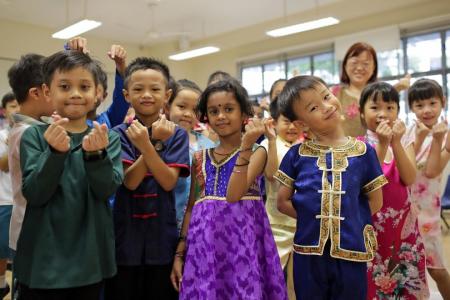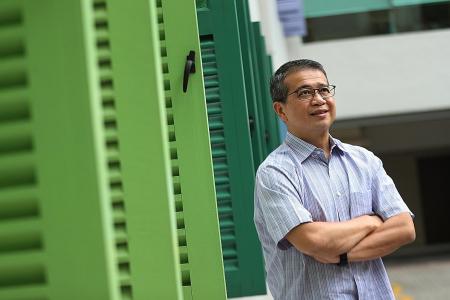Racial harmony: 'It is time to embrace, not just tolerate'
The way forward to a more cohesive Singapore still lies in meritocracy and social equity: Minister Edwin Tong
Differences over race and religion and deepening social inequality can fracture any society, and this is why multiracial, multi-religious Singapore has held up meritocracy as its core principle from the start.
Delivering his Budget statement in Parliament last week, Deputy Prime Minister Heng Swee Keat warned that the Covid-19 pandemic has deepened "the cracks in many societies", and urged Singaporeans to reject the forces of division.
As a number of nations grapple with an increasing divide within society, Minister for Culture, Community and Youth Edwin Tong believes it is time for Singaporeans to take the next step by moving away from tolerance to "embracement".
Noting that the Government will take the lead in driving this, he said: "For a long time, we have practised religious tolerance - you do what you like, I keep quiet. I think we have to be more proactive, up the ante.
"We should move from just tolerance to embracement, and this requires understanding," he told The New Paper in an interview recently.
"When Indians celebrate Thaipusam, Pongal, what does it mean? What does the Mid-Autumn Festival mean? Why does a Muslim girl wear a tudung?
"Do you understand what it means? I think before we even talk about acceptance, there must be an understanding as to why it is being done.
"In this respect, conversations are important. Government has to take the lead, but it's not the only one in this space. It can also be done by community leaders, faith leaders. It's got to be something that eventually, I hope, we can cultivate an open respectful dialogue on."
When it comes to matters of race, he said "the one strategy that we must never change is to continually take the position that we are never done".
"The moment we think we are done, I think we are going to be in for a rude shock. Because small things can go on to spark big tensions. Things can get emotional very quickly.
"So we must constantly build up goodwill in good times. The recent ISA (Internal Security Act) arrest - if we didn't have goodwill from the past built up over decades, fostered good relations between the Government and the faith leaders, (just) as the faith leaders and the community have built up over years, an incident like this would have sparked serious tensions.
"A young boy from a minority race... going after potential Muslim targets - the ingredients were so explosive.
"But the fact that we were able to come together in a united manner cannot be taken for granted.
"It's not something we should dismiss as one of those things we do in Singapore: We sort of curate and manage the whole thing, present a common front and everything goes on."
Last month, Senior Minister Tharman Shanmugaratnam spoke about a "decades-long stagnation in standards of living for the majority" around the globe, resulting in a loss of faith in meritocracy - how people can advance in life through education and better jobs.
Mr Tong believes "inequality is an issue that typically affects the more advanced, the more developed economies, because that's the nature of development".
LIFTING THE BASE
"I would say in Singapore, the additional feature of our focus has been to try to uncap the top as much as we can, we want the top to flourish as much as we can," he said.
"I believe that we have to lift the base without having to cap the top. Inequality is somewhat inevitable, but we must ensure the base goes up, so that there is improvement for all, corresponding with the progress of the economy."
He added: "We have focused on meritocracy. I think that's still a core principle, but within this we have to find the gaps within the meritocratic system, which are increasing.
"So we have systems like Workfare and social support. The best example of what we've done is Covid reliefs... I think the focus of the Government has helped and intervened a lot more."
Mr Tong, who is also Second Minister for Law, is aware that some commentators continue to criticise the "nanny state" way, but he makes no excuses for the interventionist approach adopted by the Government on such issues.
"We are very interventionist - from the time you're born until the time you die, the state is involved in some way," he said.
"When you are born, we have Baby Bonus... you have a right to things. It's very interventionist because we think that everyone needs the help... I believe we need more of this."
Get The New Paper on your phone with the free TNP app. Download from the Apple App Store or Google Play Store now



